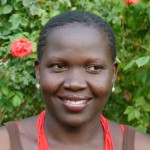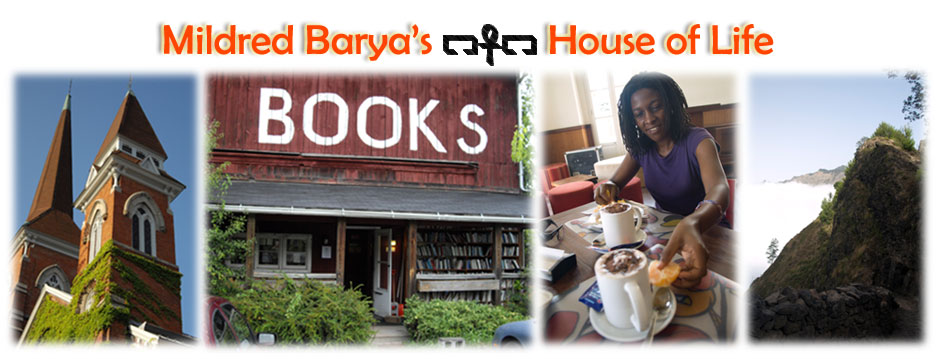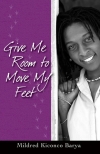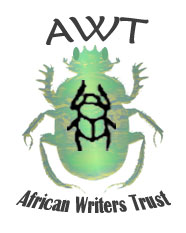 Beatrice Lamwaka, Ugandan writer, is on this year’s Caine Prize shortlist for African Writing. The 2011 shortlist (the 12th since the first prize began) was announced in May. The winner who will be announced at a celebratory dinner at the Bodleian Library, Oxford, on Monday, 11 July, will take home £10,000 prize, and a one-month residence fellowship at Georgetown University. The five shortlisted stories were selected from 126 entries from 17 African countries. Beatrice Lamwaka’s story, Butterfly Dreams, was published in a collection of short stories from Uganda bearing the same title: Butterfly Dreams and Other New Short Stories from Uganda, published by CCC Press, Nottingham, UK.
Beatrice Lamwaka, Ugandan writer, is on this year’s Caine Prize shortlist for African Writing. The 2011 shortlist (the 12th since the first prize began) was announced in May. The winner who will be announced at a celebratory dinner at the Bodleian Library, Oxford, on Monday, 11 July, will take home £10,000 prize, and a one-month residence fellowship at Georgetown University. The five shortlisted stories were selected from 126 entries from 17 African countries. Beatrice Lamwaka’s story, Butterfly Dreams, was published in a collection of short stories from Uganda bearing the same title: Butterfly Dreams and Other New Short Stories from Uganda, published by CCC Press, Nottingham, UK.
Also on the shortlist is Hitting Budapest, a story by NoViolet Bulawayo, (Zimbabwe), published in the Boston Review. What Molly New, by Tim Keegan, (South Africa), published by Pan Macmillan, SA. In the spirit of McPhineas Lata, by Lauri Kubuitsile, (Botswana), published by Modjaji Books, SA. The Mistress Dog, by David Medalie, (South Africa), published by Picador, SA.
The Caine Prize for African Writing is named in memory of the late Sir Michael Caine, former Chairman of Booker plc. He was Chairman of Africa 95, and Chairman of the Booker Prize management committee for almost 25 years. The first prize was awarded in 2000, at the Zimbabwe International Book Fair in Harare, and the 2001 Prize at the Nairobi Book Fair in September 2001. The 2011 winner will be announced at a dinner in Oxford in July, to which all the shortlisted candidates will be invited as part of a week of activities for the candidates, including book readings, book signings and press opportunities.
The 2011 panel of judges was chaired by award-winning Libyan novelist Hisham Matar. Granta deputy editor Ellah Allfrey, Georgetown University Professor of English, David Gewanter, publisher, film and travel writer Vicky Unwin, and the award-winning author Aminatta Forna. Previous winners of the Caine Prize have included E.C Osondu,alumni of Syracuse University creative writing program, 2008, among many others.
I had a chance to interview Beatrice Lamwaka and below is our conversation.
When did you start writing?
I have always admired writers since I was a child. I enjoy listening and reading to good stories. In 2000, when my first short story was accepted for publication by FEMRITE (Uganda Women Writers Association) that’s when I knew that I had skills for writing and that I would definitely contribute to the Ugandan (African) literature. Before that I had dreams of writing and what I wrote was for only my eyes. I have been writing on and off since 1999, but decided to make good use of my writing skills late 2008, and I hope that I will make a great contribution in this arena.
I’m sure people have congratulated you about the shortlist and you must be elated. But is there something frustrating about the whole ‘expectation air’ and you’d wish people were rather talking about what the opportunity would mean to you in other terms and not just the financial reward?
I have received congratulatory messages from lovers of literature around the world, which is really great because it gives me the confidence to write. I have also read very de-motivating articles that the Caine Prize promotes stereotypical African stories, but some people forget that there are wars in Africa, hunger, diseases, we laugh, rejoice and all, and as writers, we feel the pain or part of that society that is experiencing such circumstances. I will not apologize for writing war experiences because this is what I feel strongly about and I know that these stories must be told. That said, I explain to people that I can spend that 10,000 pounds in a day, but what the Caine Prize offers is a lifetime achievement in terms of promoting my work. I have already been asked by acquaintances for five percent of the money etc. But I would love to win the Caine for Uganda, for the support and the love that they have shown me after the announcement that I have been shortlisted. This shows that literature is very alive in Uganda, and not a literary desert as it has been described before.
Do you have a novel in the making or for now you’re satisfied working on short stories?
I have been writing mainly short stories because there seems to be a ready market but my eyes are on the novel, which I have already started working on, and hope to complete later this year.
Any chance for poetry, essays, plays and so on? Kindly share your experience about writing or appreciating other genres other than the short story
I have written some poetry here and there but I am not sure that I will ever have a poetry collection but may integrate poetry in my prose writing. I have also written short memoirs so maybe one day I can write a whole book.
What’s next for you?
I am trying to get a publisher to publish my collection of short stories. And I will work on my novel, and I hope to promote myself as a writer. Otherwise, I hope to write, write, write and write.
An extract from Butterfly Dreams, by Beatrice Lamwaka
“Lamunu, we may never tell you this: we buried your tipu, spirit, when word went around that you would not come back to us. The neighbors had begun to tell us that you would never return. Bongomin, who returned after four years of abduction, said he saw your dead body bursting in the burning sun. We never believed you were dead. We also didn’t want your tipu to roam northern Uganda. We didn’t want you to come back and haunt us. Ma never believed for one moment that you were gone. It was her strength that kept us hoping that one day you would return. She said she dreamt that butterflies were telling her to keep strong. The night after the dream there were so many butterflies in the house. We thought she was running mad. We thought you had taken her mind with you.”
To read the full story: Butterfly Dreams Hitting Budapest What Molly Knew In the spirit of McPhineas Lata The Mistress Dog






No comments yet.